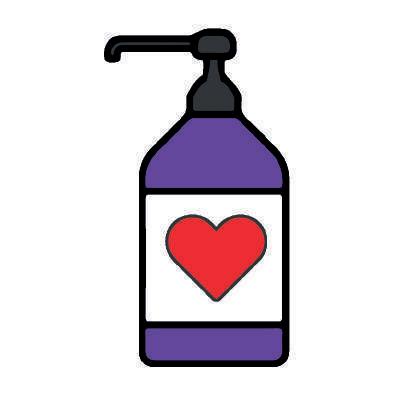Your guide to Sexually Transmitted Infections (STIs)





This resource has been designed with Black, Asian and minoritised ethnic communities to provide information on sexually transmitted infections.





A sexually transmitted infection (STI) is an infection passed from one person to another person through sexual contact. Most STIs can be cured. Some cannot be cured but, but can be managed e ectively with the right medications.
You can catch an STI by having sex with someone who has an infection. These infections are usually passed from person to person through unprotected (condomless) vaginal, anal, and oral sex; or by sharing sex toys. Some STIs, such as HPV/Warts and Herpes, can also be passed through skin-to-skin contact.
Anyone who is sexually active can get an STI, no matter their age, gender, sexuality or ethnicity. If you're having unprotected sex, touching your partner's genitals, or your partner is touching your genitals, then there is a risk of transmitting an STI.
Most STIs can be completely cured. Other STIs and blood-borne viruses, such as herpes and HIV, can't be cured. However, they can be treated e ectively with the right medications to a point where they are well managed, and people are able to live full healthy lives. Some STIs, like gonorrhoea, are becoming harder to treat due to antibiotic resistance.
There are many di erent STIs that range in severity. If le untreated, some STIs can cause serious health problem such as infertility (not
able to get pregnant), chronic (long-term) abdominal pain, joint problems, or in some cases can be fatal.


Some STIs don’t have symptoms which is why it is important to use prevention methods and get tested regularly.
The only way to know for de nite if you have an STI is to get a full screen test from a sexual health service provider.
Many STIs don’t show any signs or symptoms, however, if you experience one or more of these symptoms then you should speak to a doctor or nurse.
Pain when urinating

Unusual bleeding - between periods or a er sex

Abdominal pain



Pain during sex
Green/yellow discharge from vagina, penis or anus
Rash on hands or feet
Chlamydia
Gonorrhoea
Trichomoniasis






Most people don’t experience any symptoms, but for some, symptoms will develop 1-3 weeks a er infection.
Symptoms usually develop within 2 weeks of infection, although some people will have no symptoms at all



















Most people have no symptoms, but for some, symptoms develop within 4 weeks of infection
HIV
Genital Herpes (HSV)
Genital warts (HPV)









Public Lice (Crabs)
Most people experience a short, u-like illness 2-6 weeks a er contracting HIV. A er this HIV may not show any symptoms for some time.
Untreated, Chlamydia can lead to infertility, long-term abdominal pain, or joint problems


*Gonorrhoea is becoming harder to treat due to antibiotic resistance





There is no cure for HIV, but you can stop the progression of the virus with the right medication



Can lead to infertility, long-term abdominal pain, or joint problems
No signi cant long-term complications
If HIV is le untreated, your immune system will weaken and will be unable to ght o certain infections. This is known as ‘late stage’ HIV and can be fatal
There is no cure for HSV, but antiviral medication may shorten the duration of ‘outbreaks’ by 1-2 days
Warts can be treated with cream or lotion, or can be frozen o . Abnormal cells found in the cervix during cervical screening can be removed before they progress into cancer
Treated with insecticide cream, lotion or shampoo
Complications are incredibly rare and usually only a ect people who have weakened immune systems (e.g. by HIV or immunosuppresive medications)
High-risk types may lead to cancer of the cervix, throat or anus. There are no long-term complications of genital warts
No signi cant long-term complications, but can cause irritation or minor infections of the skin








If untreated it causes damage to the heart and the nervous system (including the brain), which can be life-threatening






There are a variety of methods that can lower your chances of getting an STI, protecting yourself and your partner, so you can enjoy sex and intimacy.
Using condoms correctly every time you have sex will o er protection from STIs and unplanned pregnancy.

Condoms are e ective at preventing the transmission of some STIs including chlamydia and gonorrhoea. Some infections can be passed on through skin-to-skin contact during sex including syphilis and the viruses that can cause genital herpes and genital warts.

Check the expiration date printed on the wrapper or box, and the kitemark
Make sure the condom’s ready to roll on the right way: the rim should be on the outside so it looks like a little hat, and will unroll easily



Pinch the tip of the condom and place it on the head of your penis. Leave a little bit of space at the top to collect the semen (cum)
Unroll the condom down the sha of your penis all the way to the base and add water based lube to prevent tearing
A er you ejaculate (cum), hold onto the rim of the condom and pull your penis out of your partner’s body. Do this BEFORE your penis goes so !
Throw the condom away in the bin – don’t ush it down the toilet (it can clog pipes)

HIV-negative people can use PrEP (Pre-exposure prophylaxis) to protect themselves from HIV. PrEP is medication that is taken on an ongoing basis, o en daily. If taken as recommended, PrEP is highly e ective at preventing HIV infection. Condoms can still be used for protection from other STIs.
PrEP is free and can be obtained from sexual health services.

PEP (Post-Exposure Prophylaxis) is a month-long course of drugs to help prevent HIV infection that is taken a er a possible exposure to HIV. PEP can be obtained from most sexual health services and emergency departments. PEP must be started within 72 hours a er you have had sex, preferably as soon as possible.
STIs can be passed on by sharing sex toys, so it is important that they are kept clean before, during and a er use. It’s best to use condoms on sex toys, and to change condoms before using them on di erent parts of the body, such as the mouth, vagina and anus, or between one person and another.
Putting herbs or tablets into the vagina, douching with water, as well as steaming, fogging or smoking the vagina to tighten and dry it for sex can be very risky. This can cause cuts and sores inside the vagina, making the cells more susceptible to infection, and increase the chances of a condom splitting.
There are vaccinations against human papillomavirus (HPV), hepatitis A and hepatitis B, that will protect against disease caused by these viruses and prevent the spread of these infections.
These vaccines are free on the NHS, but eligibility criteria apply. Speak to your GP to nd out more.
What should I do if I think I’ve been exposed to an STI?
If you have had unprotected sex with a new or casual partner and are concerned about the risk of picking up an STI, arrange to get a sexual health screen from a sexual health clinic or online service.
If you think you could have been exposed to HIV, then you can access PEP (Post Exposure Prophylaxis), a treatment that can stop you becoming infected with HIV, at a sexual health clinic or at A&E. PEP must be taken within 72 hours of exposure but ideally should be started as soon as possible a er exposure.
Regularly getting tested for STIs can prevent you from unknowingly passing on an STI to someone else. If you’re having regular unprotected sex, it’s recommended to get tested every three months.
Women aged 24 and under who are sexually active should have a chlamydia test annually and on change of sexual partner.

* The safest way to clean the genitals is to wash the vulva with water. Do not insert water inside of the vagina or use any soaps on the vulva, as this can disrupt the natural PH balance.
Although HIV can’t be cured, treatments available now mean that people living with HIV can reduce their viral load (the amount of HIV in their blood) to undetectable levels, meaning they can safely have sex without transmitting the virus.
Some STIs have no symptoms so it is possible to have an STI and not know it.
The only way to know if you have an STI is to have a full screen STI test. Everyone should have an STI screen, including an HIV test, on at least an annual basis, especially if having condomless sex with new or casual partners. HIV/STI testing and treatment is free for everyone and regardless of immigration status. Getting tested for HIV or being HIV positive will not a ect your immigration status.
Where can I get an STI test?
Sexual health clinics can screen for the full range of infections and will see people with or without symptoms.
STI self-sampling kits are also available to order online and are a good option for people with no symptoms. Kits are free for people in most areas and are also available to buy. You get a kit, collect your own samples, and post them to a lab to be tested.
Some charities, like BHA for Equality, o er free HIV/STI testing clinics in community venues.
To nd your nearest clinic, visit the website link section at the back of this booklet.
How long do STIs take to show up in tests
Clinicians o en refer to ‘window periods’ when testing for STIs. This means the length of time it takes from catching an infection to it showing up on a test.
2 weeks
Chlamydia
Gonorrhoea
HIV
Syphilis
Hepatitis B
Hepatitis C
45 days
12 weeks
If you test positive for an STI, then you will be asked to go back to the clinic to talk about what treatment you need.
You will also need to notify past sexual partners of your diagnosis, as they will also need to get tested.
If you’re sexually active, you should have an STI & HIV test every year, or every time you change sexual partners. However, it is advised that some communities test more frequently:
→ Men who are gay, bisexual, or have sex with other men, should have an annual test for HIV and STIs or every three-months if having condomless sex with new or casual partners
→ Black ethnic groups are also advised to get tested more regularly than others if having condomless sex with new or casual partners
You don't have to give your real name if you don't want to. If you do, it will be kept con dential. Your GP won't be told about your visit without your permission. The Home O ce will not be informed.
If you have tests and the results aren't available during your visit, the clinic will need to contact you later, so give them the correct contact details.
The clinic will ask how you want to receive your results. They can usually be given to you over the phone, by text, or in an unmarked letter.
If you have any special requirements for your appointment, you can request them when you
book the appointment. For example, you can request an interpreter if English is not your rst language, and you can request to be seen by a male or female doctor.
At the start of the appointment the doctor or nurse will ask you about your sexual history, which will help them to decide which tests and treatments are appropriate to o er you. Sexual history includes:
→ The last time you had sex
→ If this was with a regular or casual partner
→ If this was with a man or woman (including transmen and transwomen)
→ And if it was with a man, whether he has sex with other men
→ If you had vaginal/anal/oral sex
→ Whether a condom was used
→ If you have ever injected drugs
→ If you have been paid or have paid for sex
→ If you have had sex with someone from another country – This is used to assess risk for HIV
→ The number of sexual partners you have had in the last few months
You might be asked to provide a sample to test for any infections. This could involve:

→ Swab of either the throat, rectum, penis or vagina. The doctor or nurse may ask you to take the swab yourself if you feel comfortable doing so
→ Blood test
→ Urine sample – make sure you haven’t passed urine for 1hr before your appointment as this can make results invalid


Can you tell if someone has an STI?
Some STIs don’t show any symptoms, so it is impossible to tell if someone has an STI by looking at them. The only way to know is to take an STI test.
Can you get STIs from oral sex?
Yes. Some STIs live in the throat or on the skin, so you can get an STI from oral sex. Minimize your risk by using a dental dam or condom during oral sex.
Do all forms of contraception prevent STIs?
No, only condoms can prevent STIs. Contraception such as the pill, coil, implant etc. will only prevent pregnancy, not STIs.
Do condoms prevent against all STIs?

No. Condoms are most e ective against STIs which are transmitted through body uids, e.g. chlamydia, gonorrhoea, syphilis and HIV. Some STIs can be passed on through skin-to-skin contact. These include the HSV and HPV viruses (the viruses that can cause genital herpes and genital warts).
Do only gay men get HIV?
No. Human immunode ciency virus (HIV) can be transmitted in various ways, including through sex. It doesn’t matter what sexual orientation or gender you are—anyone who is sexually active can be at risk of HIV.
I’m a lesbian. Can I still get an STI?
Yes. If you have sex with anyone, no matter their gender or genitals, there’s a chance of passing on an STI.
If you’re touching your partner’s genitals, or they are touching yours, then there is a risk of transmitting some STIs.
Do I need to test for STIs if I’m married or in a monogamous relationship?

A monogamous relationship won’t automatically protect you from STIs (or pregnancy). It’s recommended for you and your partner to get tested yearly as a part of a regular health check.
Can I prevent pregnancy and STIs if I wash my genitals immediately a er sex?
No. Many people believe that douching ( ushing the vagina with water, soap, or antiseptic) is good hygiene, and prevents infection or pregnancy. However, douching does not prevent pregnancy and can create a higher risk of STI infection. Douching alters the vaginal ora and increases the likelihood of developing bacterial vaginosis (BV).

Can I catch the same STI more than once?
STIs that are caused by bacteria or parasites (such as gonorrhoea, chlamydia, syphilis, and trichomoniasis) can be caught repeatedly; your body does not become immune to them a er they are treated. Therefore, it is important to get tested regularly and to use condoms to reduce your risk of catching these STIs again in the future.
Many STIs don’t show any signs or symptoms, so the only way to know if you have one is to have a number of tests done at the same time (a full screen).
BHA o ers free & con dential sexual health information and advice for Black, Asian and ethnic minority communities. This booklet o ers general information on sexually transmitted infections. If you would like further information & advice, contact us at pash@thebha.org.uk
Further information
Find you nearest sexual health service
→ www.nhs.uk/service-search/sexual-health
Information on Sexually Transmitted Infections
→ www.sexwise.org.uk
→ www.nhs.uk/conditions/sexually-transmitted-infections-stis

Information on sexual health
→ www.gmpash.org.uk
Advice, support, and information for BAME communities

→ www.thebha.org.uk

Advice, support, and information for people living with HIV
→ www.ght.org.uk
Advice, support, and information for LGBTQI
→ www.lgbt.foundation
Illustrations by Shilvan Da Costa
Content co-produced by BHA for Equality and the Northern Contraception, Sexual Health and HIV Service.



Design by Jennifer Corcoran 27eleven.co.uk
Published November 2022